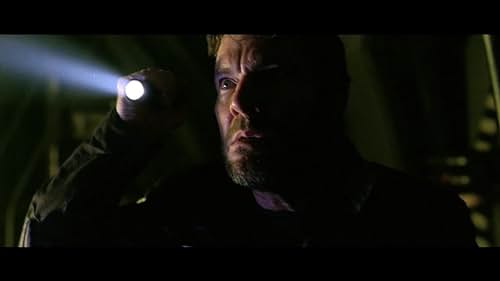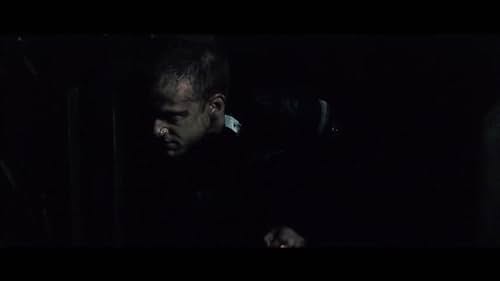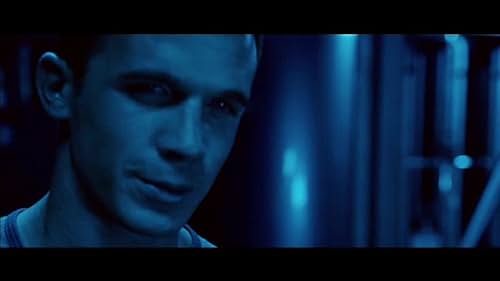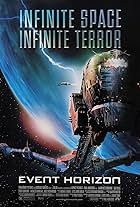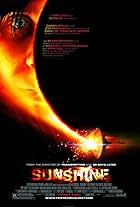Due membri dell'equipaggio di un'astronave si svegliano dal suo sonno profondo e scoprono che tutti i loro colleghi sono scomparsi. Nonostante ciò, sembra che non siano soli.Due membri dell'equipaggio di un'astronave si svegliano dal suo sonno profondo e scoprono che tutti i loro colleghi sono scomparsi. Nonostante ciò, sembra che non siano soli.Due membri dell'equipaggio di un'astronave si svegliano dal suo sonno profondo e scoprono che tutti i loro colleghi sono scomparsi. Nonostante ciò, sembra che non siano soli.
André Hennicke
- Hunter Leader
- (as André M. Hennicke)
Niels-Bruno Schmidt
- Insane Officer 'Eden'
- (as Niels Bruno Schmidt)
Asia Luna Mohmand
- Childhunter
- (as Luna Mohmand)
Neelesha Barthel
- Female Crew Officer
- (as Neelesha Bavora)
Trama
Lo sapevi?
- Quiz'Pandorum' is the first film in a proposed trilogy, but it is doubtful the sequels will ever see the light of day due to the first film's low box-office performance.
- BlooperWhen Bower is attempting to awaken Payton by banging on his tube, it reads Payton from the outside. In a reverse angle from inside the tube, it clearly reads Bower, indicating the tube was reused from the earlier sequence when Bower awakened.
- Curiosità sui creditiThe studio logo segues into space.
Recensione in evidenza
Echoing such luminous sci-fi classics as 2001 and Alien, Pandorum is a terrific psychological thriller, although it does struggle at times to be coherent and original. But it's a true mindbender, and it's packed with action that moves so quickly neither the actors nor the audience can really catch a breath, which is a good move if your plot is shaky to begin with.
As with the best deep-space movies, the context is mental illness, what the Professor on Gilligan's Island called, oddly enough, "island madness." Only in space. In the distant, distant future, a ship has been sent from the Earth carrying a lot of people, headed to the only Earth-like planet ever found. Sometime during the journey, things go awry. We pick up the story as an astronaut named Bower (Ben Foster) awakens from hypersleep, abruptly; he's soon followed by his commanding officer, Payton (Dennis Quaid). The rest of the crew is gone, and the only door is locked from the outside. What's happened here? Making matters more difficult is the amnesia that each man suffers from, owing to their having been in hypersleep way longer than intended. Somehow, they must piece together what has happened and find out what lies behind that door - and throughout the rest of the gigantic ship.
Not only does the movie recall Aliens and 2001, you can also see similarities to The Descent and The Abyss; really, any movie in which people are trapped in claustrophobic environs. And although the pacing is frenetic at times, the movie is really chillingly shot (by Wedigo von Schultzendorff). On the one hand, the plot flows linearly - Bower needs to get to the ship's reactor so he can reboot it and save everyone - meaning that the actors race from scene to scene, running out of time. On the other hand, they don't piece together what's happened as quickly as they might in other, lesser films; they seem to figure things out gradually, as if assembling a puzzle in their heads. Bowers and others - and there are others - discover right away, though, that they're not really alone on the ship and that their enemies are extremely strong and fast and vicious.
Injected into this oh-my-goodness-what's-out-there madness is, well, madness. The movie's title is explained as being a sort of mental illness that affects astronauts from time to time, when they just plain go bonkers for seemingly no reason and kill everyone on board. Is that's what's happening here? Is Bower the crazy one? Or is it Payton? Are they, in fact, alone on the ship? Foster is excellent as the hero who remembers a little bit more of their mission as time elapses; Quaid, in turn, shows a few more layers than we're accustomed to seeing from him (he's usually more of a poor man's Harrison Ford). Both actors turn in convincing, full-throated performances that complement, rather than succumb to, the special effects and cinematic wizardry. Often, the effects are the entire show. Now, it's true that you won't see a lot of character development here, as you might in the most cerebral of sci-fi, but what works best here is the paucity of knowledge about the situation and the characters. By spinning the tale gradually, feeding the audience only a snippet at a time, director Christian Alvart dangles the mystery in front of his viewers without allowing them to settle back and solve the mystery on their own. When you're constantly kept on your toes with sudden lurches of unseen shapes and reverberating noises, you - like the befuddled characters - are concurrently kept off balance. The result is an unsettling, entertaining delight.
As with the best deep-space movies, the context is mental illness, what the Professor on Gilligan's Island called, oddly enough, "island madness." Only in space. In the distant, distant future, a ship has been sent from the Earth carrying a lot of people, headed to the only Earth-like planet ever found. Sometime during the journey, things go awry. We pick up the story as an astronaut named Bower (Ben Foster) awakens from hypersleep, abruptly; he's soon followed by his commanding officer, Payton (Dennis Quaid). The rest of the crew is gone, and the only door is locked from the outside. What's happened here? Making matters more difficult is the amnesia that each man suffers from, owing to their having been in hypersleep way longer than intended. Somehow, they must piece together what has happened and find out what lies behind that door - and throughout the rest of the gigantic ship.
Not only does the movie recall Aliens and 2001, you can also see similarities to The Descent and The Abyss; really, any movie in which people are trapped in claustrophobic environs. And although the pacing is frenetic at times, the movie is really chillingly shot (by Wedigo von Schultzendorff). On the one hand, the plot flows linearly - Bower needs to get to the ship's reactor so he can reboot it and save everyone - meaning that the actors race from scene to scene, running out of time. On the other hand, they don't piece together what's happened as quickly as they might in other, lesser films; they seem to figure things out gradually, as if assembling a puzzle in their heads. Bowers and others - and there are others - discover right away, though, that they're not really alone on the ship and that their enemies are extremely strong and fast and vicious.
Injected into this oh-my-goodness-what's-out-there madness is, well, madness. The movie's title is explained as being a sort of mental illness that affects astronauts from time to time, when they just plain go bonkers for seemingly no reason and kill everyone on board. Is that's what's happening here? Is Bower the crazy one? Or is it Payton? Are they, in fact, alone on the ship? Foster is excellent as the hero who remembers a little bit more of their mission as time elapses; Quaid, in turn, shows a few more layers than we're accustomed to seeing from him (he's usually more of a poor man's Harrison Ford). Both actors turn in convincing, full-throated performances that complement, rather than succumb to, the special effects and cinematic wizardry. Often, the effects are the entire show. Now, it's true that you won't see a lot of character development here, as you might in the most cerebral of sci-fi, but what works best here is the paucity of knowledge about the situation and the characters. By spinning the tale gradually, feeding the audience only a snippet at a time, director Christian Alvart dangles the mystery in front of his viewers without allowing them to settle back and solve the mystery on their own. When you're constantly kept on your toes with sudden lurches of unseen shapes and reverberating noises, you - like the befuddled characters - are concurrently kept off balance. The result is an unsettling, entertaining delight.
- dfranzen70
- 23 set 2009
- Permalink
I più visti
Accedi per valutare e creare un elenco di titoli salvati per ottenere consigli personalizzati
Dettagli
- Data di uscita
- Paesi di origine
- Siti ufficiali
- Lingue
- Celebre anche come
- Pandorum: terror en el espacio
- Luoghi delle riprese
- Aziende produttrici
- Vedi altri crediti dell’azienda su IMDbPro
Botteghino
- Budget
- 33.000.000 USD (previsto)
- Lordo Stati Uniti e Canada
- 10.330.853 USD
- Fine settimana di apertura Stati Uniti e Canada
- 4.424.126 USD
- 27 set 2009
- Lordo in tutto il mondo
- 20.648.328 USD
- Tempo di esecuzione1 ora 48 minuti
- Colore
- Mix di suoni
- Proporzioni
- 2.35 : 1
Contribuisci a questa pagina
Suggerisci una modifica o aggiungi i contenuti mancanti

Divario superiore
What is the streaming release date of Pandorum - L'universo parallelo (2009) in India?
Rispondi
